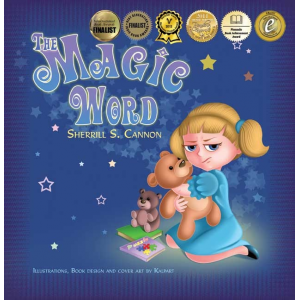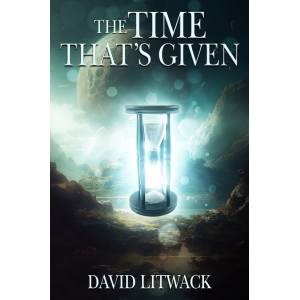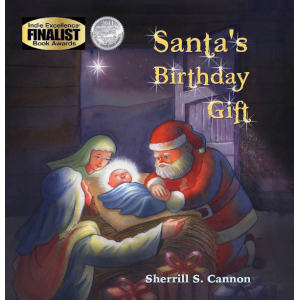Book Buzzr
🔗 https://bookbuzzr.com/books/22334/Kleptomaniac-Whos-Really-Robbing-God-Anyway- Author
- Book
- Story behind the book
- Media Links
- Reviews

Frank Chase Jr
About
Dr. FRANK CHASE, JR., author of False Roads To Manhood, What Women Need To Know; What Men Need To Understand, and the new release, KLEPTOMANIAC: Who's Really Robbing God Anyway? He is a native of Baltimore, Maryland. He considers himself a miracle because at birth he weighed only two pounds and lived when the doctor's didn't think he'd make it. Dr. Chase is the president of FC Publishing, LLC. He works for the government as a senior aviation writer for the Department of the Army. He's a four-year veteran of the United States Army. Mr. Chase earned a Bachelor of Arts Degree in Communications and a minor in Sociology from Washington State University in 1989. Dr. Chase has a BA in Biblical Studies and a Master of Arts in Theology from North Carolina College of Theology (NCCT) and has earned his Doctorate in Theology from NCCT in 2009. He has authored and published numerous religious articles for newspapers, online magazines and print media. He has appeared on television and radio programs for his first book. Chase is a Alabama resident and lives with his wife Teresa and their two children.
Anyone who knows Frank will tell you that he has always been an analytical thinker about every aspect of life even from childhood. Frank Chase Jr. has been married for 19 years to Teresa Chase. He is a proud father of six children, Jeremiah, Nathanial, Roketta, Amanda, Emmanuel, and Sara. He has five grandsons, Xavier, Josiah, Aleksey, Jayden and Eli. In his professional career, Frank writes preventive maintenance articles for Army aircraft for the Department of the Army. He is an avid racquetball player, and loves movies, reading and good conversation, and he never shies away from talking about difficult or even controversial subjects. Frank loves to read, play racquetball, and to work out at the gym. If you start a conversation with Frank, be prepared for hours of engaging conversation that will dazzle the mind.

The Magic Word
Description
<p style="margin:0in 0in 10pt;" class="MsoNormal"><span style="line-height:115%;font-family:'Times New Roman', serif;font-size:12pt;">Elisabeth was rude and selfish and demanding, and therefore had very few friends.<span> </span>When she sent out invitations to her birthday party, no one accepted.<span> </span>Her mother warned her that she needed to improve her manners and to try to get along with people.<span> </span>She told Elisabeth that she needed to use the magic word “Please”.<span> </span>So when Elisabeth went to school the next day, she thought of her mother’s advice, “What is the magic word?” and she started saying “Please” and also “Thank You”.<span> </span>She tried to become more thoughtful of others, and discovered that she was a much happier person.<span> </span>Imagine her pleasure when she returned home to find out that her new friends were all coming to her birthday party!</span><span style="line-height:115%;font-family:Arial, 'sans-serif';font-size:10pt;"></span></p><p></p>
Story Behind The Book
The story behind Kleptomaniac: Who’s Really Robbing God Anyway is a 30-year unfolding tale of suspicion, intrigue and questions. It all started innocently when I first became a believer in the Messiah. One of the doctrines I first became indoctrinated to was the practice of paying ten percent of my income to the institutional church as a command from God. As the years passed by I began to question this financial obligation. Although it was tough to pay this kind of money, I dutifully kept my obligation to pay God ten percent no matter the circumstances. Even in the face of not being able to pay my bills and in some cases feed my family, I paid God what He required through His representative on earth—the Church—the tithe of ten percent in hopes of receiving a blessing for my commitment as taught from the scriptures by pastors who relied on Malachi 3:8-10 as the tithe mandate. As the years passed by I began to notice the windfall financial blessing I hoped to receive from God never materialized. The abundance that was to overtake me financially somehow escaped my grasp. After 30 years of paying ten percent of my income as a so-called tithe to God, questions grew in my heart as financial struggles mounted. As I paid tithes over and over without financial relief, I eventually suffered bankruptcy. About several years ago, I began to investigate tithing on a deeper theological and scholastic level out of a need to try to find some financial relief from tithing. Kleptomaniac: Who’s Really Robbing God Anyway began with a probing question. What is tithing? By this time, I was a member of a church group that taught heavily on tithing and even suggested that all tithes must be paid on gross income before taxes to receive God’s blessings. And before you ask whether I succumbed to the pressure to of paying tithes on gross income, the answer is yes. And this went on for several years, which almost lead to going bankrupt again. The book came into fruition as a result of a conversation with my x-pastor about the belief system of Jewish people. At that point, the subject of tithing came into the conversation, which prompted me to inquire of Jewish experts about what the Bible teaches about tithing monetary income. My first shocking discovery about monetary tithing came from a Jewish Rabbi’s point paper on giving to God. As I read through the document I wept tears of joy, but when reality set in, I became angry. What I thought was tithing for 30 years turned out to be not so accurate. As it turned out, tithing is in the Bible, but tithing money was not in the Bible. As I got over the initial shock, I thought I perhaps needed to do more research to verify my initial discovery. And so I went on a research journey and read my first two books on tithing. The information contained in those books blew up my so-called theology on tithing like an IED and created immediate cognitive dissonance in my tithing belief system. Now, I was faced with a theological decision about what I would do about my newfound information. My first action was to write my church leadership about my decision to resign from monetary tithing and to take sabbatical leave to go on a yearlong study of the subject and come back with an empirical analysis on what tithing is in the Bible. Needless to say, my decision did not go well and the struggle for truth began. Even as I stepped down or was removed from leadership depending on who you talk to, fellowship with this church became more difficult because leadership felt I became a financial threat to the bottom line if the congregation discovered what I had learned about tithing. In the end, I was indirectly excommunicated from that church. After leaving that institution, I began studying tithing and compiled 117-page power point study and sent my finding to the church. Kleptomaniac: Who’s Really Robbing God Anyway started as a power point study and expanded into a 400 page theological manifesto based on empirical, academic, scholastic research that went from the church America to the land of Israel. In that journey, I discovered that tithing monetary income is not contained on the pages of the Holy Bible, nor was it ever uttered from the mouth of God that a tithe is ten percent of a person’s income.
Media Links
↗
PR Log
🔗 https://www.prlog.org/12579736-fc-publishing-llc-announces-new-book-that-could-save-your-financial-life-in-church.html↗
PR.com
🔗 http://www.pr.com/press-release/685546↗
Our News Magazine
🔗 https://ournewsmag.com/index.php/2022/07/23/kleptomaniac-whos-robbing-god-anyway/↗
Book Review by AAMBC
🔗 https://www.goodreads.com/review/show/2123667673↗
PR Urgent
🔗 https://www.prurgent.com/2019-09-02/pressrelease459680.htm↗
Issue Wire
🔗 https://www.issuewire.com/dr-frank-chases-rebuttal-of-monetary-tithing-supported-by-televangelists-recent-admission-of-false-teaching-1738542918332847↗
Reviews
<p><strong>Reviewed by Ray Simmons for Readers' Favorite</strong></p> <p>Kleptomaniac: Who’s Really Robbing God Anyway? The untwisted truth about the centuries-old tithes and offering deception by Dr. Frank Chase Jr, TH. D fills a narrow but very real niche in the area of biblically derived lessons and advice on the subject of tithes and offerings. I would have thought most Christians would research this topic themselves if it were very important to them, but to have all the references in one book, along with sound commentary and advice from a biblical scholar, certainly makes it easier. Dr. Frank Chase Jr. describes his own evolution of ideas about tithing and I must say we went through many of the same phases in pretty much the same order. I stopped evolving while Frank Chase Jr. went on to write this book that helps other Christians who have the same questions he had. Christianity at its best.</p> <p>Kleptomaniac: Who’s Really Robbing God Anyway? may have more biblical quotes and references to tithing and money in general than any book I have ever read, save, of course, the Bible itself. It is written in a very smooth and articulate style that I’m guessing will be understandable to most people, but at the same time Dr. Frank Chase Jr’s education and vocabulary are evident on every page. As is his faith and his desire to help. From Abraham to Paul, Frank Chase Jr. delves into the origin, the definition, the application, and even the abuse of the custom of tithing. It is an interesting and sometimes colorful history and one Christians should certainly be more aware of. This book will help them. <a href="https://readersfavorite.com/book-review/kleptomaniac">https://readersfavorite.com/book-review/kleptomaniac</a></p> <p> </p> <p><strong>Reviewed by John Staughton of Self Publishing Review</strong></p> <p><em>Kleptomaniac</em> is an insightful and well-constructed argument on tithing and offerings at church, not only defending the author’s decision not to give money blindly, but also defending his right to seek the truth in Bible Scripture.</p> <p>Everything that the author Frank Chase Jr. says is backed up in some way with huge amounts of research, resulting in a comprehensive and rather airtight argument against this unfair system that is often foisted on believers.</p> <p>The balanced approach of the book is particularly enjoyable; there are no judgments or inflammatory language, but there is simply impassioned debate from a man who cares enough about his religion to perform his due diligence.</p> <p>There are a few points that seem to veer off into unsupported opinions, but these are few and far between. Furthermore, there are a number of spots where word choice is a bit odd (e.g., “I asphyxiated on verses about tithing”, rather than <em>fixated</em>) and some grammatical editing is needed here before this is published. However, despite the delicate subject matter, the author approaches the topic with well-researched evidence, solid facts, and his own firm beliefs, to deliver a very insightful read recommended for those interested in or needing information on Church culture and community. <a href="http://www.selfpublishingreview.com/2016/09/kleptomaniac-whos-really-robbing-god-anyway-by-frank-chase-jr/">http://www.selfpublishingreview.com/2016/09/kleptomaniac-whos-really-robbing-god-anyway-by-frank-chase-jr/</a></p> <p><strong>Reviewed by </strong><strong>D. Donovan, Senior Reviewer, Midwest Book Review</strong></p> <p>Kleptomaniac: Who's Really Robbing God Anyway? The Untwisted Truth About the Centuries Old Tithes and Offering Deception examines the history of church tithes, a practice from the early days of Christianity which takes a darker turn as its history and connections to actual Scripture are probed from its original applications to modern times. But if readers expect a supportive Scripture-based emphasis on the value of tithes, it should be advised that Kleptomaniac does not toe a party line of religious propriety but offers a sobering and critical examination of the notion of tithes and how it has changed over the centuries.</p> <p>Church-goers who struggle with the idea of tithes and Church donation processes will discover that there's reason for their concerns. There is an ongoing battle for truth and orthodoxy surrounding these matters, and this too is covered as Kleptomaniac analyzes the Biblical roots and intention of tithes and how the Church has applied them over the centuries.</p> <p>This book is dedicated "To those who have suffered the wrath of family, friends, pastors, churches and other Christians for changing their giving practice from mandatory tithing to New Covenant, post-tithe freewill giving, remember, this fight to reveal the truth about tithing started centuries ago. People from many denominations and religious groups have held views against tithing long before we were born and the debate still rages on in the annals of theology."</p> <p>That tithing has long been a powerful controversy is reflected in the Introduction's dedication: "To those who have been excommunicated from their church, to those who feel shunned, to those who have lost friends, to those who have been cut off from fellowship and to those who want to give from their heart without a percentage mandate, your voices will echo through the pages of this book. Also, to the believers from past generations who died never knowing that a curse on their lives never existed for not tithing, may this book be a light to your descendants who are still afraid to question tithing."</p> <p>Despite its fiery contentions, Kleptomaniac's approach rests firmly on a combination of historical precedent, experience and analysis, and Scriptural quotes that back Dr. Frank Chase Jr.'s scrutiny. Chapters thus adopt a scholarly tone as they pull quotes from Scripture to analyze them: "I will examine the different tithes as separate items for context. The Bible gives specific instructions on how to distribute the tithe and to whom the tithe belonged. Who did God command to receive the tithe and who paid the tithe? Numbers 18, lays out the legal legislation on tithes under the law. However, before we look at this text, let's jump forward to the New Testament. Hebrews 7:5 is the nail in the proverbial coffin that says who can collect tithes."</p> <p>From keywords and comparing Bible references to how tithes were (and are) being stolen from early to modern times, Dr. Chase's scholarly analysis is precise, well detailed and reasoned, intricately researched and referenced, and yet is very accessible to lay audiences: "I think this book presents convincing doctrinal evidence that no money tithe argument can be established because it is inconsistent with Scripture, context and history. Although the Bible clearly describes that tithing took place in many verses, it does not mean that we continue the practice through commuting the tithe to money. The description of tithing food in the Old Testament does not equate to a money tithe prescription in the New Testament."</p> <p>Dr. Chase's attention to detail in covering the history of tithing and his analysis of what constitutes an authentic tithe in keeping with God' Biblical directives includes a great deal of research into early Greek and Hebrew writings, creating a weighty yet authoritative, accessible piece filled with empirical evidence and discussions central to the tithe's place in Christian theology. Although its research-backed history is not light reading, its attention to well- researched detail is impeccably presented, and represents a breath of fresh air to a topic typically laden with more emotion than reasoned inspection.</p> <p>The result is a thought-provoking read which is very highly recommended for any Church member interested in the history and ongoing debate over tithes, their mandate, and where and how they are spent. D. Donovan, Senior Reviewer, Midwest Book Review. <a href="http://www.midwestbookreview.com/mbw/jan_17.htm#donovan">http://www.midwestbookreview.com/mbw/jan_17.htm#donovan</a></p>





